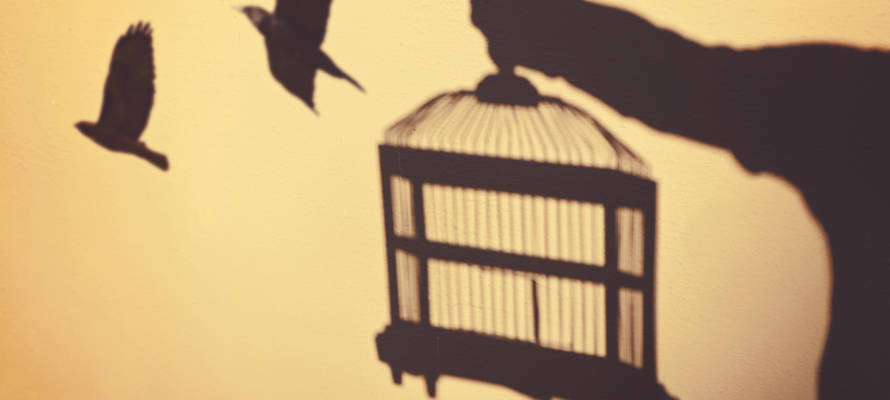It was precisely birds that were chosenfor this particular sacrifice, as birds are always “chirping,” ie. talking.
By Rabbi Ari Enkin, Rabbinic Director, United with Israel
This week we read two Torah portions: an occasional occurrence in order to ensure that we complete the 54 Torah portions every year. This week’s double portion is “Tazria-Metzora” (Leviticus 12:1 – 15:33), and both readings discuss the purification procedures for those who are impure.
Regarding the “Metzora,” an individual stricken with a spiritual skin disease, the Torah says: “The Kohen (priest) will command the person being purified to take two live, pure birds, cedar wood, a crimson tongue of wool, and hyssop” [Leviticus 14:4].
This was the special sacrifice that was offered when the Metzora completed his or her period of impurity. The commentators suggest that since the most common sin which resulted in becoming a metzora was the sin of “evil speech” and gossip, perhaps it was precisely birds that were the chosen animal for this sacrifice, as birds are always “chirping,” ie. talking.
A person who speaks about others is a person who is “chirping” too much. The birds are offered as the atonement sacrifice to remind the sinner to close his mouth a bit more often and not go around chirping about others.
But why TWO birds?
The Torah continues: “…one bird will be slaughtered into an earthenware vessel over spring water. The other [live] bird will be taken with the cedar wood and the wood and the hyssop, and he shall dip them and the live bird into the blood of the bird that was slaughtered. Then the Kohen shall sprinkle the blood seven times upon the person being purified…and he shall set the live bird free” [Leviticus 14:5-7].
One bird is slaughtered and one bird is sent away all bloodied up.
Why is one bird set free? There may not be any other precedent in the Torah of releasing an animal designated as a sacrifice.
It is explained that the two birds correspond to two different kinds of speech, good speech and bad speech. The bird that is slaughtered represents bad speech: slander, gossip and all the rest. The bird that is released and remains alive represents “good speech”: a kind word, an encouraging comment, a friendly gesture.
The Torah was concerned that the sinner might think that from here on, he should be quiet. He might think that in order not to come to speak evil speech he should just remain silent. But that is not the Torah’s way.
We don’t believe in avoiding innocent, positive practices and routines lest it lead one to sin. We believe in self-control, effort, and continual self-improvement to ensure that our regular routines and practices are used wisely and result in positivity. We believe that the way to serve God is to use all of our talents, routines and faculties for good purposes.
So the message of the bird sacrifice is simply to be yourself. You like talking, that’s great! Talk all the good you want! We serve God by using all urges in a positive manner. The two birds remind us that we can use our talents equally for good or for bad. So make sure that your “bird” is always that one that is set free!
For more insights from Rabbu Enkin on this week’s Torah portion, click in the links below:
https://unitedwithisrael.org/living-torah-can-wealth-be-both-a-blessing-and-a-curse/
https://unitedwithisrael.org/living-torah-always-say-thank-you/
https://unitedwithisrael.org/living-torah-taking-others-into-consideration/
